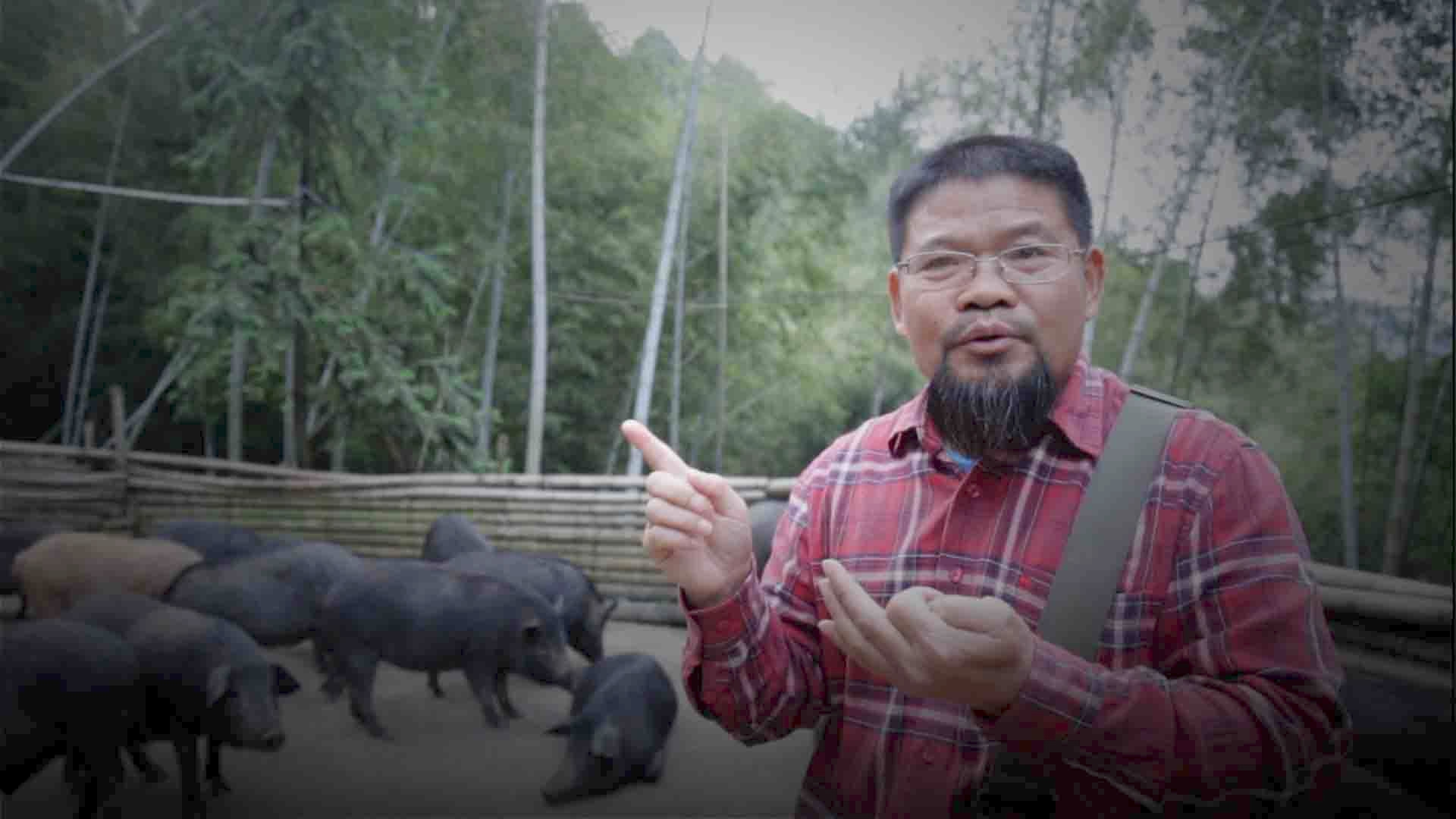By CGTN's Zhou Jinxi
Nine years ago, He Yong quit his successful career as a lawyer without hesitating. He gave his law firm to his partner for free and moved to the Mangshan mountains in central China’s Hunan Province to become a pig farmer.
“He could easily earn hundreds of thousands of yuan as a lawyer,” said his wife. “But his health was suffering – his weight hit 90 kilograms. And after one of his friends died at a young age, he decided to start a new life.”
As He Yong wins official praise for a cooperative established with locals to produce more profitable premium pork, his story acts as an exemplar of a lot of trends playing out in China. The government has been encouraging farming reform to modernize the sector and make backward communities more economically viable. As part of that, it hopes that city slickers like He Yong can be persuaded to settle in the countryside, bringing their management experience with them.
The former barrister practices ethical raising of his pigs, eschewing intensive production and the kind of dodgy shortcuts that fuel regular food scandals in China. The public is tired of pork found to have been adulterated with prohibited chemicals to enhance growth, and increasingly wealthy consumers are happy to pay for peace of mind about what is on their plates.

He Yong and his Mangshan Black pigs /CGTN photo
To begin with, He Yong was motivated by similar dietary concerns himself.
“The reason must be the food, that’s why I came to the mountains to be a pig farmer, I want to eat something healthy,” he said.
Simple, old-fashioned methods have been used to try to achieve this. “We persist in an ancient pig raising concept, how people in agricultural times raised pigs… never use vaccines, never use antibiotics, no hormones,” He Yong explained of his hogs, a new breed named Mangshan Blacks.
He Yong is one of many farmers who think that happy animals equal tasty meat. He and his staff play music for the pigs, let them live in the open air in an environment far removed from industrial facilities, and feed them healthy food – which they even sample themselves.

He Yong trys the pig feed /CGTN photo
Now, after years of work, the Mangshan Blacks have not only helped He Yong recover his health but have made one-time peasants in the mountains far more prosperous. The co-op, which is 50-percent-owned by local families, can demand five times the normal rate for its pork. The villagers are in charge of raising the pigs, and He Yong helps with training.
“The market for Mangshan Black pigs is very good – we sell our pork in Changsha, Guangzhou and to restaurants in Beijing,” said He Yong. “We shared out a bonus last year; each family got 5,000 yuan [730 US dollars]”.
He Yong has also opened restaurants in the mountains to develop tourism, something local authorities have been happy to help with through building roads to make the area more accessible. He’s restaurants are staffed by dozens of young people who have returned from jobs in cities.
From migrant workers to local officials, people in China are realizing that career paths and grand plans like He Yong’s are far from hogwash.










